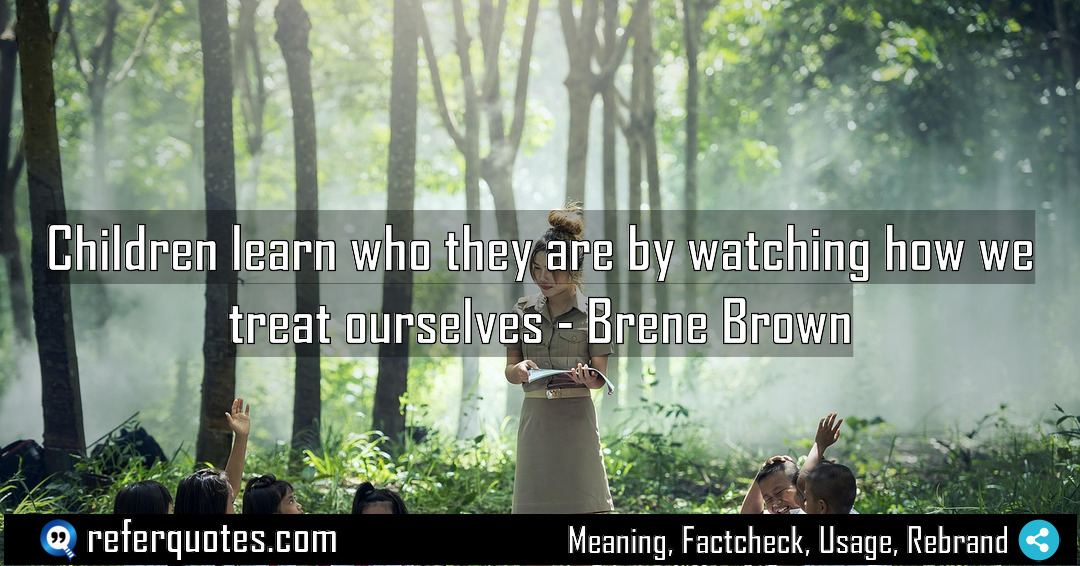You know, when Brene Brown said “Children learn who they are by watching how we treat ourselves,” she really nailed something profound. It’s not just about the direct lessons we teach our kids. It’s about the silent curriculum they absorb every single day from watching us navigate our own lives, our own mistakes, and our own self-worth. This idea completely reframes parenting from a performance to a practice of being.
Share Image Quote:Table of Contents
Meaning
Your self-talk and self-compassion don’t exist in a vacuum. They are the primary blueprint your child uses to construct their own sense of self.
Explanation
Let me break this down. We spend so much time worrying about what we’re saying to our kids, right? The lectures, the praise, the corrections. But what Brown is pointing out is that the real teaching, the stuff that sinks deep into their bones, happens when they see you look in the mirror and sigh with disgust, or when you brush off a compliment, or when you beat yourself up for a tiny mistake. That’s the moment they’re learning. They’re learning that self-criticism is the default. Conversely, when they see you acknowledge your own effort, set a boundary because you’re tired, or laugh at your own clumsiness, they learn a different script entirely. One of grace. It’s incredibly powerful, and honestly, a little terrifying.
Quote Summary
| Context | Attributes |
|---|---|
| Original Language | English (3668) |
| Category | Relationship (329) |
| Topics | identity (102), modeling (12) |
| Literary Style | reflective (255), simple (291) |
| Emotion / Mood | gentle (183), truthful (22) |
| Overall Quote Score | 85 (305) |
Origin & Factcheck
This quote comes straight from Brené Brown’s 2013 audiobook, The Gifts of Imperfect Parenting. It’s a core concept from her research on shame, vulnerability, and wholehearted living, applied specifically to the parent-child dynamic. You won’t find it misattributed to other parenting gurus; this is pure, unfiltered Brown.
Attribution Summary
| Context | Attributes |
|---|---|
| Author | Brene Brown (257) |
| Source Type | Book (4032) |
| Source/Book Name | The Gifts of Imperfect Parenting: Raising Children with Courage, Compassion, and Connection (35) |
| Origin Timeperiod | 21st Century (1892) |
| Original Language | English (3668) |
| Authenticity | Verified (4032) |
Author Bio
Dr Brene Brown is the author of books such as Daring Greatly and The Power of Vulnerability. The TED talk and Netflix production based on her research reached out to millions of audience. She researches effects of courage and vulnerability in shaping people's work and relationships. She leads the Brené Brown Education and Research Group and provides evidence-based insights into practical tools to help people train themselves
Official Website |Facebook | X | Instagram | YouTube |
Where is this quotation located?
| Quotation | Children learn who they are by watching how we treat ourselves |
| Book Details | Publication Year/Date: 2013; ISBN/Unique Identifier: 978-1611801053; Last edition: 1st Edition (Sounds True, 2013). Number of pages: 160. |
| Where is it? | Approximate page from 2013 edition, Chapter: Self-Respect and Modeling |
